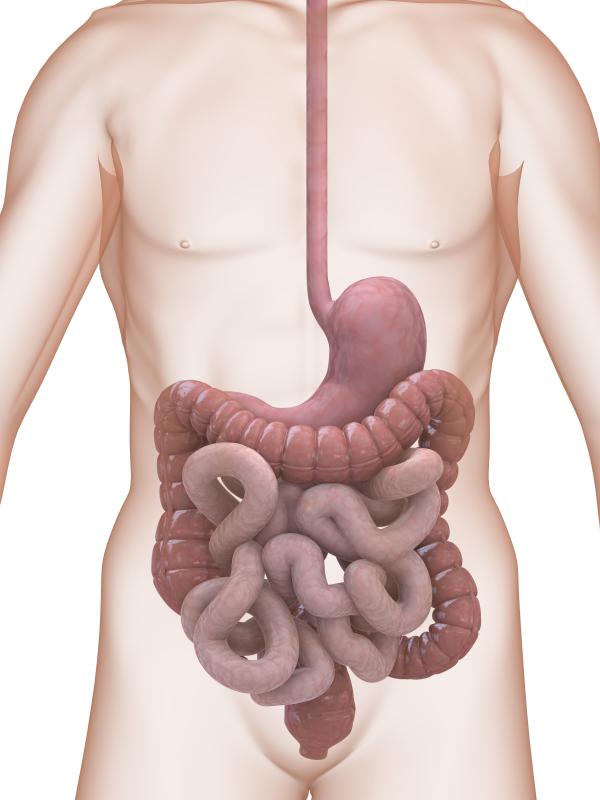At TheHealthBoard, we're committed to delivering accurate, trustworthy information. Our expert-authored content is rigorously fact-checked and sourced from credible authorities. Discover how we uphold the highest standards in providing you with reliable knowledge.
What is Defecation?
Defecation is act sometimes giggled about by little children and that usually is considered taboo in polite conversation. Also known as a bowel movement — and by a variety of slang terms — defecation is simply the final act of digestion. It is during this act that the elimination of solid or semisolid wastes from the body occurs. The waste that is expelled is known as feces, fecal matter, or stool.
Since the digestive tract is constantly working, organisms are always one step closer to defecating. Food that is being digested is constantly being pushed through the small and large intestine. While the small intestine absorbs nutrients from food, the large intestine absorbs mostly salt and water. Soon after an organism eats, the muscles in the digestive tract start to work. They expand and contract, and cause the food to start passing through the digestive tract.

The large intestine is divided into five different parts. It consists of the cecum, the ascending colon, the descending colon, the transverse colon and the sigmoid colon. Muscles in the wall of the colon contract to send the fecal matter toward the rectum, where it is stored until it can be eliminated from the body. These muscle contractions are called peristalsis.

When the fecal matter reaches the rectum, the walls of the rectum expand. This then triggers stretch receptors in the rectum, and the feces is forced into the anal canal. The need to defecate is felt when this happens. Most people are able to hold their feces until they can reach a toilet. This is achieved by tightening the external sphincter on the anus. Others, including small children, the elderly and people with conditions such as spinal cord injuries, may not be so lucky, and defecation may be involuntary.

The final act of defecation occurs when the fecal matter finally passes out of the body. When the external sphincters are relaxed, muscle contractions push the stool out of the body. A number of different muscles throughout the body are used during defecation. Force is exerted by the chest muscles, the diaphragm, abdominal muscles, and the pelvic diaphragm. Blood pressure rises during defecation, and breathing temporarily ceases as well.
If defecation is not performed, the feces is sent back to the colon, where more water is absorbed. If a person waits to defecate for too long, he may become constipated. Constipation usually results in hard, dry stools that are hard to pass, and it may require a laxative. Those with frequent constipation and other bowel problems may need to consult with a doctor of proctology. Proctologists treat disorders of the primary organs of defecation, including the colon, rectum, and anus.
AS FEATURED ON:
AS FEATURED ON:













Discuss this Article
Post your comments